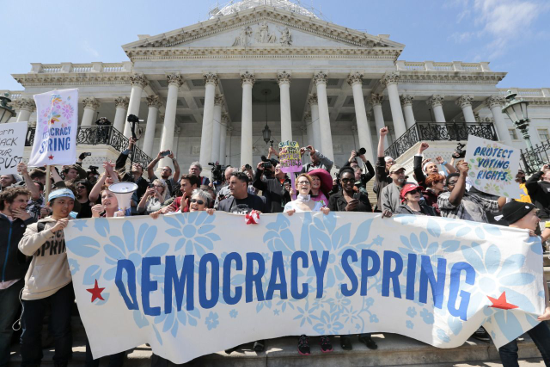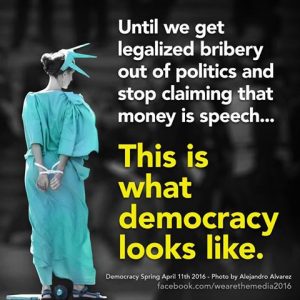The 140-mile march from Philadelphia against money in politics ended in Washington D.C. with a week of civil protests. Over 600 activists have been arrested to date.
A prominent name among those arrested was Food First advocate Frances Moore Lappe, who said, “Democracy is the way we work together to meet our deepest nonphysical needs: for connection, meaning, and power. Tragically, this promise has been corrupted by a concept of democracy so thin that it’s let a wealthy minority drown out the voices of the people.”
